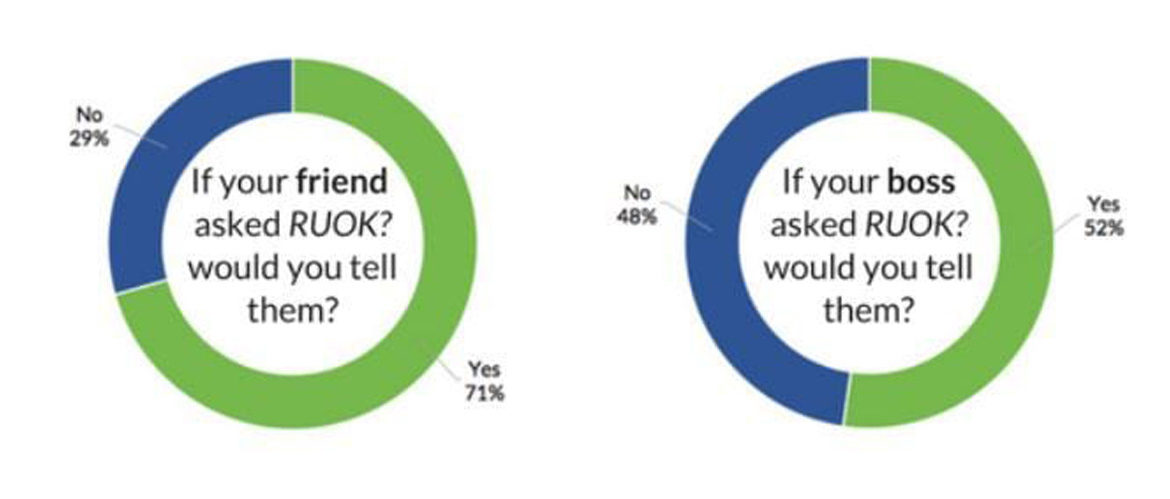10 Strategies to Boost Your Team’s Mental Health in 2025
A friend of mine recently shared a story about their workplace transformation. He worked in a demanding industry, where stress was part of the daily routine. However, after their company introduced a series of mental health initiatives, including comprehensive mental health training, the atmosphere shifted.
Employees felt heard and supported, leading to increased productivity and overall happiness. This experience underscores the critical role of mental health in fostering a thriving workplace.
“Our workplace transformed after attending the WMHI’s training. Employees felt heard and supported, leading to improved morale and productivity. Prioritising mental health made a lasting positive impact on our culture—these training sessions are essential for any organisation.”
As we move through 2025, mental health should be a top priority for organisations. Here are ten ways to improve mental health in your workplace:
-
Implement Mental Health Training
Mental health training is the cornerstone of building an informed and supportive workplace. At the Workplace Mental Health Institute, our programs empower managers and employees to recognise the signs of mental health challenges and respond with confidence and care. By taking a proactive approach, we enable early intervention and cultivate a workplace culture that truly prioritises the well-being of its people.
How To:
- Training should offer practical advice on creating a positive workplace.
- Encourage an open and stigma-free culture where getting help is the norm.

-
Promote Open Conversations
A workplace culture that encourages open dialogue about mental health can break down stigma. This openness can lead to a more connected and understanding workforce. BUT, there is such a thing as talking too much about it and making it worse! So beware.
How To:
- Establish a work culture in which mental health discussions are encouraged but not required.
- Train managers to handle such discussions with tact and empathy.
- Strike a balance—talking about mental health should be helpful and not taxing.
-
Flexible Working Arrangements
The traditional 9-to-5 work model is evolving. Flexibility acknowledges the diverse needs of employees and supports their mental health.
How To:
- Offer flexible work arrangements such as teleworking, variable schedules, or compressed workweeks.
- Focus on outcomes rather than strict schedules.
- Trust the staff to manage their time in a way that will be productive and well-balanced.
-
Create a Wellness Program
A comprehensive wellness program goes beyond physical health. A robust wellness program equips employees with tools to manage their mental health proactively and include mindfulness sessions, resilience workshops, and stress management training.
How To:
- Incorporate activities like mindfulness exercises, guided meditation, or well-being challenges.
- Encourage participation through engaging and inclusive programs.
- Gather input from employees to keep initiatives relevant and effective.
-
Provide Access to Resources
Ensure employees have access to mental health resources such as Employee Assistance Programs (EAPs), counseling services, or mental health apps.
How To:
- Work with mental health professionals to offer confidential counseling services.
- Share information about available resources regularly, so employees know where to turn when they need help.
- Normalise using these resources from the top down—if leadership participates, others will follow.
-
Encourage Breaks
Encouraging regular breaks is crucial for maintaining mental health. Short, frequent breaks can help employees recharge and refocus, preventing burnout.
How To:
- Integrate breaks into the work culture in the form of a walk, stretching exercises, or simply taking a break from the screens.
- Establish areas where employees can take breaks and relax.
- Set the example—when managers take breaks, employees will be comfortable doing the same.
Are you a psychologically safe manager? Take the self assessment to find out.
-
Recognise and Reward Efforts
Recognition goes a long way in boosting morale and reducing stress. Feeling valued can significantly impact an employee’s mental well-being.
How To:
- Express thanks through verbal compliments, handwritten thank-you notes, or team recognition.
- Celebrate wins—small or significant—so employees understand that what they do counts.
- Customise the recognition to personal preferences; maybe they would love public recognition or just a personal thank you.
-
Foster a Supportive Environment
Creating a supportive environment involves establishing policies and practices that prioritise mental health.
How To:
- Develop clear expectations that support work-life balance.
- Empower managers with the tools to facilitate effective support to teams.
- Address workplace challenges with an emphasis on well-being instead of just productivity.
-
Offer Professional Development
Professional growth opportunities contribute to employee satisfaction and mental well-being. Offer training, workshops, and courses that not only advance careers but also include components on managing stress and building resilience.
How To:
- Invest in employee learning opportunities to allow employees to grow professionally and personally.
- Encourage peer learning and mentoring to promote a sense of belonging.
- Keep development accessible—learning shouldn’t add stress, it should inspire growth.
-
Regularly Assess Workplace Wellbeing
Continual assessment of workplace well-being ensures that mental health strategies remain effective and relevant.
How To:
- Communicate with staff through surveys or one-on-one conversations.
- Pay attention to workplace trends—burnout, absenteeism, or disengagement may be a sign that change is in order.
- Adjust approaches according to actual feedback, not on the assumption of what works.
Applying the above ten tips will go a long way into turning your workplace into a place where people and productivity thrive.
PS. At WMHI, we specialise in creating customised mental health training programs that address the unique needs of each workplace. Our expert team is dedicated to helping your organisation build a thriving, supportive environment. Contact us today to learn more about how we can partner with you to prioritise mental health and achieve lasting positive change.
Read the latest issue of the WorkLife magazine – Building Safe Workplaces






 Peter Diaz is the CEO of
Peter Diaz is the CEO of